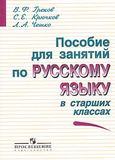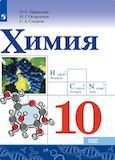Упр.3 Уроки 7-8 Юнит 2 Рабочая тетрадь New Millennium English 10 класс
3 Прочитайте текст и выберите верные формы глагола.
Почему у лузеров по жизни присутствует оттенок неудачи.
Ученые открыли, что чувство запаха у людей может создавать разницу между успехом и провалом. Влияние может быть таким сильным, что однажды один определенный запах (1) становится ассоциацией с провалом любого будущего появления, что может превратить победителя в неудачника.
Ученые в научном центре в Филадельфии (2) добились успеха, подтверждая эту мысль путем того, что поместили волонтеров внутрь лабиринта, чтобы посмотреть, смогут ли они найти выход. Во время того, как они (3) пытались решить проблему, они не знали, что их (4) подвергли цветочному аромату. Что еще они не знали, так это то, что это был безвыходный лабиринт, и что они (5) были обречены на неудачу.
Некоторое время спустя, волонтеры (6) получили другую, но на этот раз, решаемую задачу. Одних подвергли тому же запаху, а других другому, или вовсе никакому аромату.
Доктор Рут Хертц, (7) которая вела исследование, сказала: «Мы обнаружили, что те, кто подвергся тому же запаху, что в лабиринте, показали результаты значительно хуже. Ощущение неудачи, вызванное запахом, привело их к тому, что они (8) показали результаты ниже своих способностей во втором, разрешимом тесте. Наши результаты предположили, что запахи, которые (9) получают особые эмоциональные отклики, могут менять поведение и результативность»
Доктор Хертц и ее команда (10) сейчас работают над запахом удачи. Мысль в том, что если запах неудачи может превратить людей в неудачников, тогда запах, ассоциируемый с успехом, мог бы превратить неудачников в победителей. «Если бы был запах, который (11) ассоциируется с успехом и достижением, он мог бы позже использоваться для мотивации людей» сказала она.
(взято из Индепендент от 16 ноября 1999 года)
Решение #
(1) becomes
(2) succeeded
(3) were trying
(4) were being
(5) were bound
(6) took
(7) led
(8) performed
(9) have acquired
(10) are now working
(11) was associated
Приведем выдержку из задания из учебника Казырбаева, Дворецкая 10 класс, Титул:
3 Read the text and choose the correct verb forms.
Why losers in life have smell of failure
Scientists have discovered that people’s sense of smell can make the difference between success and failure. The influence can be so powerful that once a particular smell (1) becomes associated with failure any future exposure can turn winners into losers.
Scientists at a scientific center in Philadelphia (2) succeeded in proving this idea by putting volunteers inside a maze (лабиринт) to see if they were able to find their way out. While they (3) were trying to solve the problem, they didn’t know that they (4) were being exposed to a flower scent. What they also did not know was that it was an impossible maze and that they (5) were bound to fail (были обречены на неудачу).
Some time later, the volunteers (6) took another, but this time solvable test; some were exposed to the same smell, and others to another smell or no smell at all.
Dr Ruth Hertz, who (7) led the research, said: “We found that those who were exposed to the same smell as for the maze task (8) performed significantly worse. The feeling of failure induced (вызванное) by the smell led them to perform below their natural ability in the second and solvable test. Our results suggest that smells that (9) have acquired specific emotional responses can change behaviour and performance.”
Dr Hertz and her team (10) are now working on the smell of success. The idea is that if the smell of failure can turn people into losers, then a smell associated with success could turn losers into winners. “If you had the smell that (11) was associated with success and achievement it could be used later to motivate people.” she said.
(Adapted from The Independent 16 November 1999)
Популярные решебники 10 класс Все решебники
*размещая тексты в комментариях ниже, вы автоматически соглашаетесь с пользовательским соглашением





